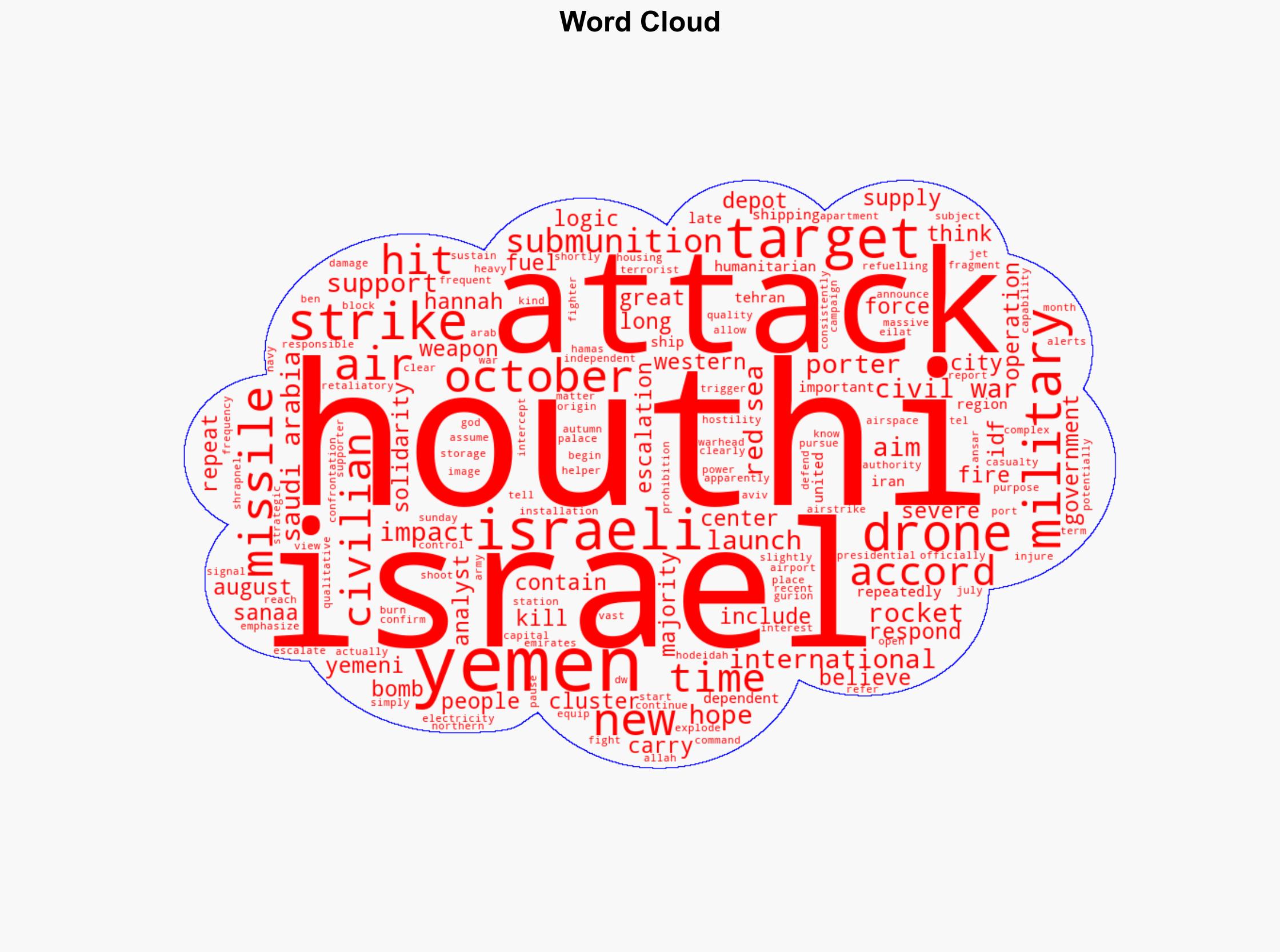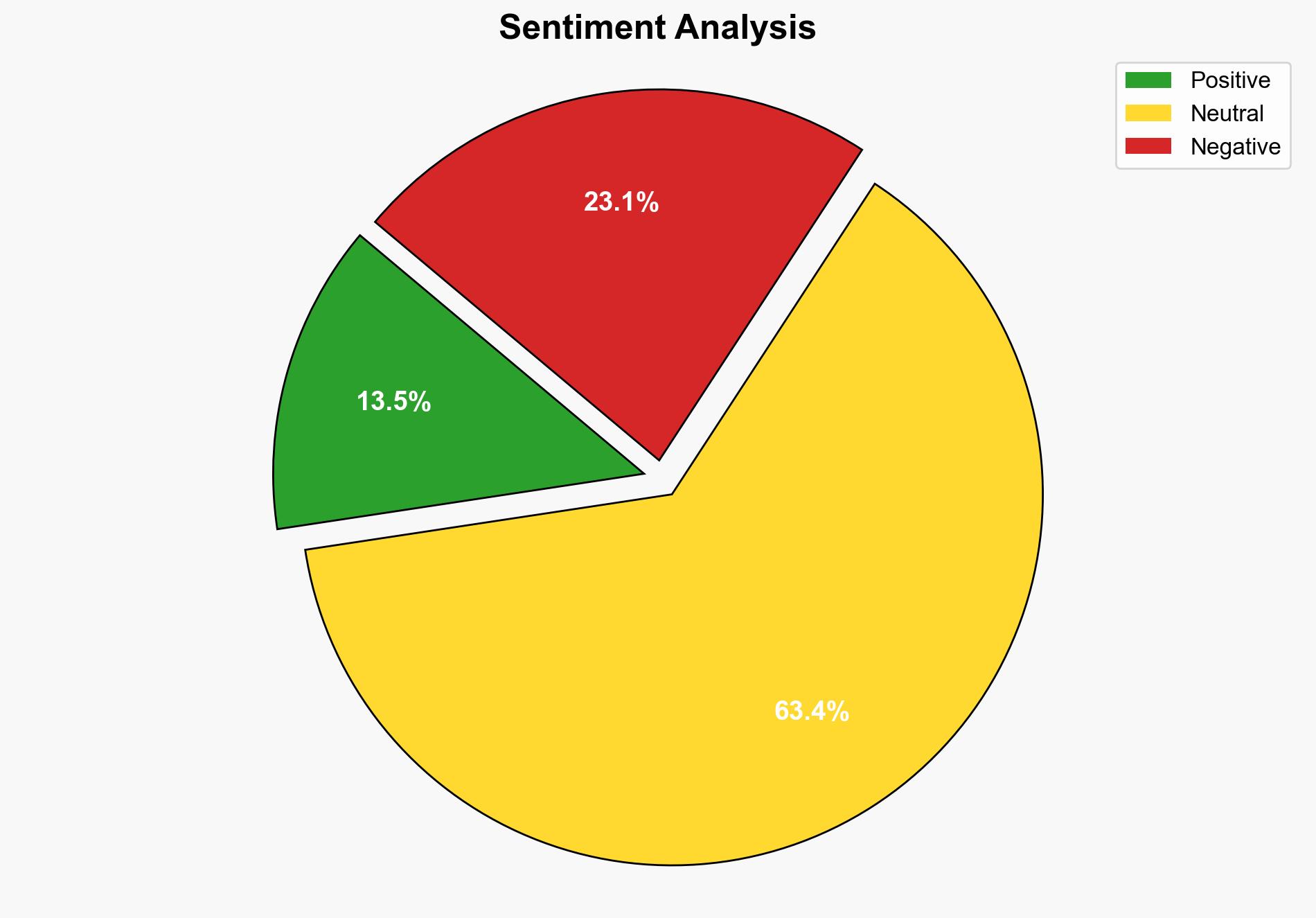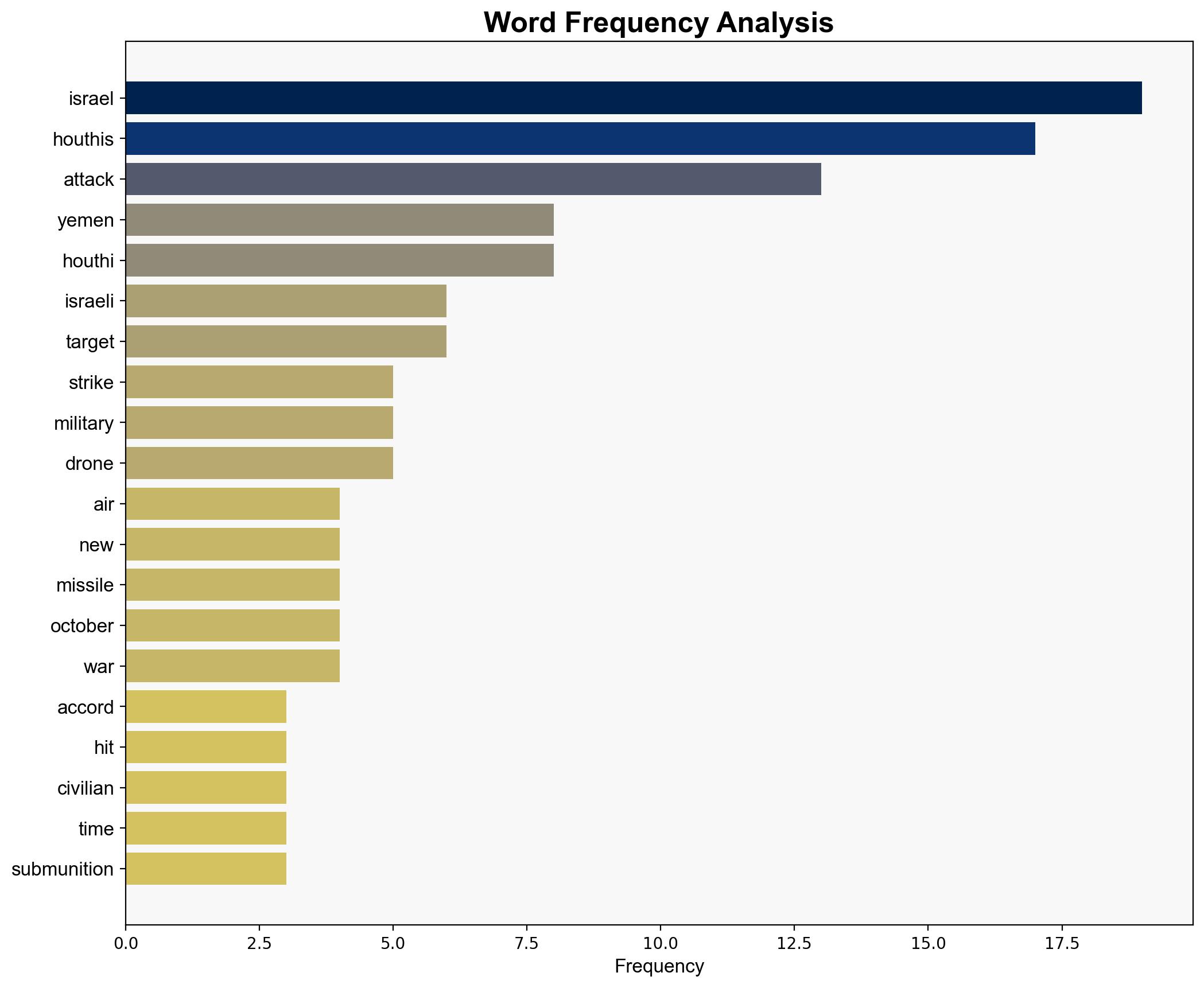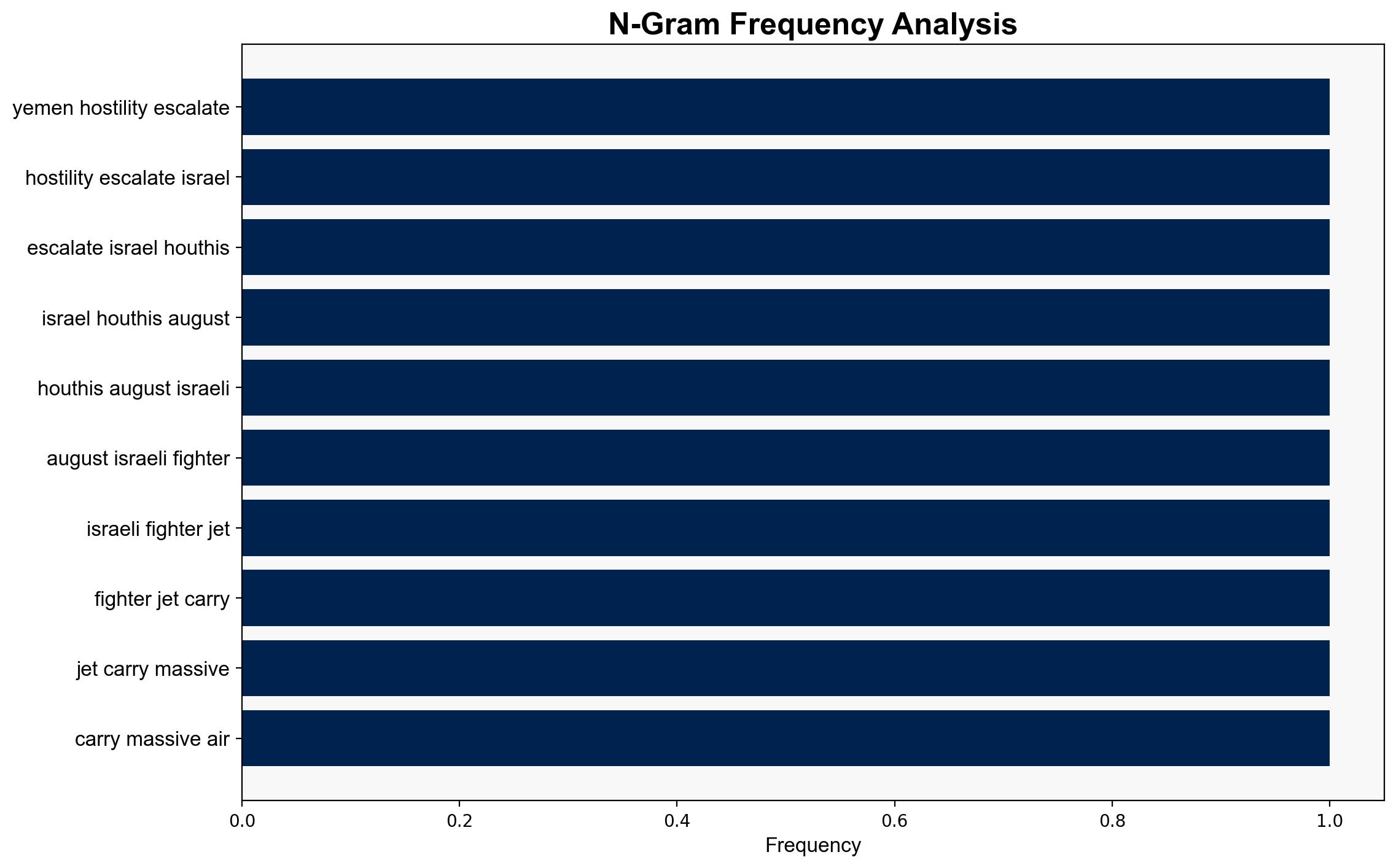Yemen Escalation in hostilities between Israel and the Houthis – DW (English)
Published on: 2025-08-27
Intelligence Report: Yemen Escalation in hostilities between Israel and the Houthis – DW (English)
1. BLUF (Bottom Line Up Front)
The most supported hypothesis is that the Houthis are escalating their military capabilities and attacks against Israel as a strategic move to gain regional influence and leverage in negotiations, with a moderate confidence level. It is recommended to increase diplomatic efforts to de-escalate tensions and explore backchannel communications to prevent further escalation.
2. Competing Hypotheses
1. **Hypothesis A**: The Houthis are escalating hostilities against Israel to demonstrate enhanced military capabilities and assert regional influence, potentially under Iranian guidance.
2. **Hypothesis B**: The Houthis are using attacks on Israel as a diversionary tactic to draw international attention away from their domestic challenges and humanitarian crises in Yemen.
Using the Analysis of Competing Hypotheses (ACH) 2.0, Hypothesis A is better supported due to the evidence of new military capabilities, such as submunition missiles, and the strategic logic of aligning with Iran’s regional objectives.
3. Key Assumptions and Red Flags
– **Assumptions**: It is assumed that the Houthis have received advanced military technology and support from Iran. Another assumption is that the Houthis’ actions are strategically aligned with broader Iranian objectives.
– **Red Flags**: The reliability of reports on the Houthis’ military capabilities and intentions could be influenced by biased sources. The potential exaggeration of the Houthis’ capabilities by involved parties to justify military actions is a concern.
– **Blind Spots**: Limited direct intelligence on the internal decision-making processes of the Houthis and their coordination with Iran.
4. Implications and Strategic Risks
The escalation could lead to broader regional instability, drawing in additional actors such as Saudi Arabia and the UAE. The use of advanced weaponry increases the risk of significant civilian casualties, which could provoke international condemnation and complicate diplomatic resolutions. There is also a risk of cyber retaliation or asymmetric warfare tactics being employed by the Houthis or their allies.
5. Recommendations and Outlook
- Enhance intelligence-sharing with regional allies to monitor Houthi capabilities and intentions.
- Initiate diplomatic engagements with Iran to mitigate its support for Houthi escalations.
- Scenario-based projections:
- **Best Case**: Successful diplomatic interventions lead to a de-escalation of hostilities.
- **Worst Case**: Continued escalation results in a broader regional conflict involving multiple state and non-state actors.
- **Most Likely**: Periodic escalations with intermittent diplomatic efforts to manage tensions.
6. Key Individuals and Entities
– Hannah Porter, an independent Yemen analyst, provides insights into the strategic logic of Houthi actions.
– The Houthis, also known as Ansar Allah, are central to the conflict dynamics.
– Iran is a key ally and potential influencer of Houthi actions.
7. Thematic Tags
national security threats, regional focus, military escalation, diplomatic strategy





